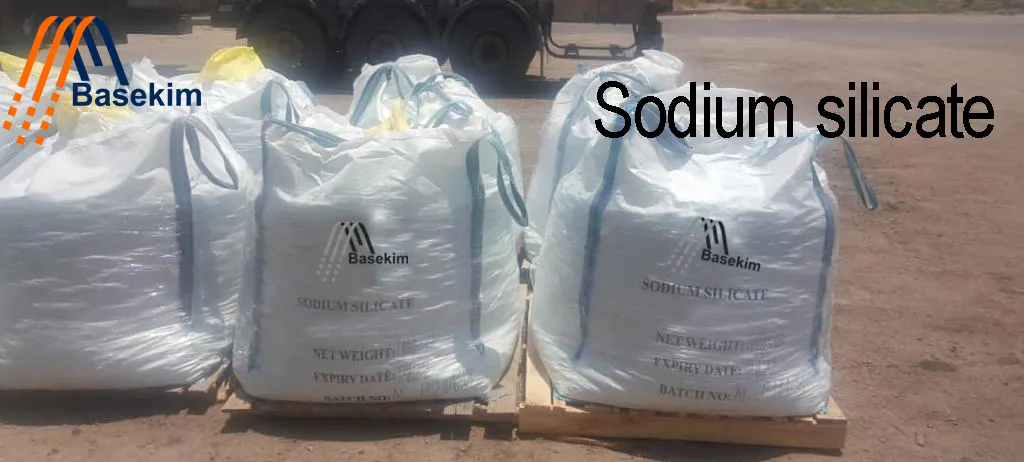Sodium silicate is an inorganic chemical made from silica (sand) and sodium oxide, supplied as a liquid or solid, and widely used as a binder, adhesive, corrosion inhibitor, and alkalinity source in industrial processes. It matters because it combines chemical stability, strong binding ability, and cost efficiency in one material. Manufacturers, engineers, and procurement teams use sodium silicate where they need strength, heat resistance, alkalinity control, or protection against corrosion. If your process involves detergents, foundry molds, surface treatment, or construction materials, sodium silicate is often a practical and proven choice.
What sodium silicate is in practical terms
In industrial reality, sodium silicate is not a single fixed product. Buyers usually deal with different SiO₂:Na₂O ratios, concentrations, and physical forms. These variables directly affect how the product performs in real applications.
You will typically see sodium silicate supplied as:
Liquid sodium silicate (water glass) with defined solids content
Solid sodium silicate in powder or granular form
From an operational point of view, the ratio matters more than the name. Higher silica ratios usually give better binding strength and heat resistance, while lower ratios increase alkalinity and solubility. This balance determines whether the material works well in your process or creates problems downstream.
Common industrial applications and why it works
Sodium silicate appears in many industries because it solves different problems with the same chemistry.
Detergents and cleaning formulations
In detergent manufacturing, sodium silicate acts as:
An alkalinity buffer
A corrosion inhibitor for metal surfaces
A dispersing aid that keeps dirt suspended
Formulators value it because it stabilizes pH and protects equipment during washing cycles. In real production lines, controlling the silicate ratio helps prevent residue or excessive foaming.
Foundry and refractory systems
Foundries use sodium silicate as a binder for sand molds and cores. When cured with CO₂ or heat, it forms strong, heat-resistant bonds.
From experience, mold strength depends heavily on:
Silicate ratio
Moisture control
Curing method
Poor ratio selection can cause brittle molds or difficult shakeout after casting, which is why technical alignment with the foundry process is critical.
Construction and cement-based materials
In construction chemicals, sodium silicate functions as:
A surface hardener
A sealant for concrete
A fire-resistant additive
It reacts with free lime in concrete to form insoluble calcium silicate, which improves surface density. Contractors use it where dust reduction and surface durability matter more than decorative finish.
Pulp, paper, and packaging
Paper mills use sodium silicate to:
Stabilize peroxide bleaching
Control pH during pulping
Improve fiber processing
Operators prefer it because it reduces peroxide decomposition and improves bleaching efficiency without aggressive chemicals.
Water treatment and corrosion control
In water systems, sodium silicate helps form a protective film on metal surfaces. This film limits corrosion in pipes and equipment, especially in municipal and industrial water networks.
Here, consistency matters more than strength. Variations in composition can lead to unstable protection layers.
Performance factors buyers should evaluate
Many issues with sodium silicate come from choosing the wrong grade rather than the wrong supplier. Experienced buyers look beyond price and focus on technical fit.
Key factors to review include:
Silica-to-sodium ratio
Solids content (%)
Viscosity (for liquid grades)
Solubility and dilution behavior
Compatibility with other chemicals
For example, a detergent manufacturer may need a lower viscosity liquid for easy pumping, while a foundry may accept higher viscosity in exchange for stronger binding.
Quality standards and specifications
Industrial sodium silicate usually follows internal producer specifications rather than a single global standard, but buyers often request alignment with:
ASTM-related testing methods for composition
ISO quality management systems (ISO 9001)
Batch-to-batch consistency documentation
From a procurement perspective, consistent COA data, stable ratios, and traceable production matter more than marketing claims. Reputable suppliers control raw material purity and production temperature to avoid insoluble silica or unstable solutions.
Handling, storage, and safety considerations
Sodium silicate is alkaline and requires basic chemical handling discipline, even though it is not highly hazardous.
Practical handling points include:
Use corrosion-resistant storage tanks
Prevent freezing of liquid grades
Avoid contamination with acids unless intended
In plants, operators usually treat it like other alkaline solutions, using standard PPE such as gloves and eye protection. Solid grades need dry storage to prevent caking.
Limitations and realistic expectations
Sodium silicate performs well, but it is not universal. In some applications:
It may leave alkaline residues
It can be sensitive to hard water conditions
It may not suit formulations requiring neutral pH
Understanding these limits early helps avoid reformulation costs later. Experienced buyers often test small batches before full-scale adoption.
Supply formats and logistics considerations
Industrial buyers typically source sodium silicate in:
Bulk tankers for liquid grades
IBCs or drums for medium volumes
Bags or big bags for solid forms
Logistics planning matters because viscosity increases in colder climates, affecting unloading time. Reliable exporters like Basekim focus on stable packaging and documentation to avoid delays during international shipment.
How buyers decide if sodium silicate fits their process
A practical evaluation usually starts with three questions:
Do you need alkalinity, binding, or corrosion protection?
What ratio and form best match your process conditions?
Can your equipment handle the viscosity and pH safely?
Clear answers to these points usually determine success more than brand choice.
Conclusion and next steps for industrial buyers
Sodium silicate remains a versatile and cost-effective solution across detergents, foundries, construction, paper, and water treatment because it delivers strength, stability, and chemical control in one material. Its performance depends on choosing the right grade, ratio, and form for your specific application. Buyers who focus on technical alignment, consistent quality, and proper handling gain the most value.
If sodium silicate matches your process needs, the next logical step is to review detailed specifications, confirm compatibility through trials, and align supply terms with your production scale. Working with an experienced supplier such as Basekim can help ensure the product fits both your technical and logistical requirements without unnecessary risk.

